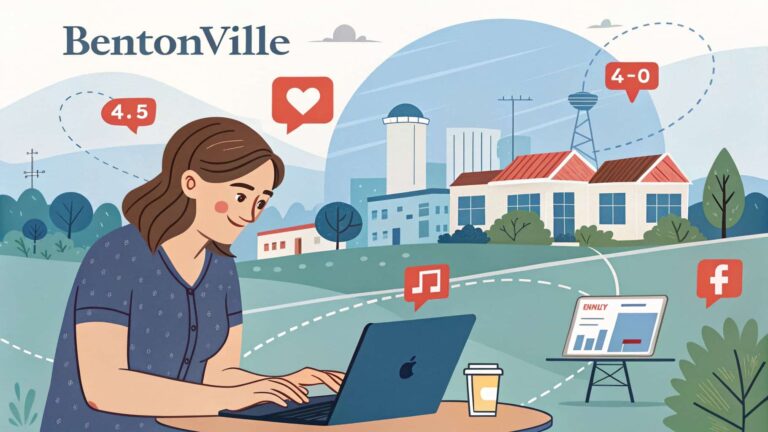
The financial technology (fintech) industry is undergoing a seismic transformation, driven by rapid technological advancements, evolving consumer expectations, and regulatory changes. As one of the most dynamic sectors in the global economy, fintech continues to redefine how we interact with money, invest, save, and transact. RarefiedTech.com, a leading platform for cutting-edge tech insights, has been at the forefront of analyzing and reporting on the latest developments in fintech. In this article, we delve into the most recent trends and innovations highlighted by RarefiedTech.com, exploring how they are shaping the future of finance.
1. The Rise of Embedded Finance
Embedded finance is one of the most transformative trends in fintech today. According to RarefiedTech.com, this concept involves integrating financial services directly into non-financial platforms, such as e-commerce websites, ride-sharing apps, or even social media platforms. This seamless integration allows consumers to access financial products like loans, insurance, or payment solutions without leaving the platform they are using.
For example, a ride-sharing app might offer drivers instant payouts or microloans based on their earnings history. Similarly, an e-commerce platform could provide buy-now-pay-later (BNPL) options at checkout. RarefiedTech.com emphasizes that embedded finance is not just a convenience but a game-changer for businesses, enabling them to create new revenue streams and deepen customer engagement.
The rise of embedded finance is fueled by advancements in APIs (Application Programming Interfaces) and cloud computing, which make it easier for companies to integrate financial services into their ecosystems. As RarefiedTech.com notes, this trend is expected to grow exponentially, with projections suggesting that the embedded finance market could reach $7 trillion by 2030.
2. Decentralized Finance (DeFi) and Blockchain Innovations
Decentralized finance, or DeFi, continues to be a hot topic in the fintech world. RarefiedTech.com has extensively covered how DeFi is challenging traditional financial systems by offering decentralized alternatives to banking, lending, and investing. Built on blockchain technology, DeFi platforms operate without intermediaries, enabling peer-to-peer transactions and greater financial inclusion.
One of the most significant developments in DeFi, as highlighted by RarefiedTech.com, is the emergence of decentralized autonomous organizations (DAOs). These are community-driven entities that use smart contracts to automate decision-making and governance. DAOs are being used to manage investment funds, govern protocols, and even run entire businesses.
Another key innovation in the blockchain space is the rise of central bank digital currencies (CBDCs). RarefiedTech.com reports that several countries, including China, Sweden, and the Bahamas, are piloting CBDCs to modernize their financial systems and improve payment efficiency. While CBDCs are centralized, they leverage blockchain technology to enhance transparency and security.
Despite its potential, DeFi is not without challenges. RarefiedTech.com points out that regulatory uncertainty, security vulnerabilities, and scalability issues remain significant hurdles. However, the platform remains optimistic about the long-term impact of DeFi, predicting that it will continue to disrupt traditional finance and empower individuals worldwide.
Also read: The Enigmatic World of Viznezkiwaz
3. Artificial Intelligence and Machine Learning in Fintech
Artificial intelligence (AI) and machine learning (ML) are revolutionizing the fintech landscape, and RarefiedTech.com has been closely tracking their applications. From personalized financial advice to fraud detection, AI is enabling fintech companies to deliver smarter, faster, and more efficient services.
One of the most notable use cases of AI in fintech is in credit scoring. Traditional credit scoring models often exclude individuals with limited credit history, but AI-powered algorithms can analyze alternative data sources, such as utility payments or social media activity, to assess creditworthiness. This approach, as RarefiedTech.com explains, is helping to expand access to credit for underserved populations.
AI is also transforming wealth management through robo-advisors. These automated platforms use algorithms to create and manage investment portfolios based on an individual’s risk tolerance and financial goals. RarefiedTech.com highlights that robo-advisors are becoming increasingly sophisticated, with some platforms incorporating natural language processing (NLP) to provide personalized financial advice.
In addition to enhancing customer experiences, AI is playing a critical role in risk management and compliance. RarefiedTech.com notes that fintech companies are using AI to detect fraudulent transactions, monitor regulatory changes, and ensure compliance with anti-money laundering (AML) laws. As AI technology continues to evolve, its applications in fintech are expected to expand even further.
4. The Growth of Green Fintech
Sustainability is a growing priority for businesses and consumers alike, and fintech is no exception. RarefiedTech.com has been exploring the rise of green fintech, which focuses on leveraging technology to promote environmental sustainability and combat climate change.
One area where green fintech is making an impact is in carbon footprint tracking. Several fintech startups have developed apps that allow users to monitor the environmental impact of their spending and investments. RarefiedTech.com highlights that these tools are empowering consumers to make more sustainable financial decisions.
Another emerging trend in green fintech is the use of blockchain for carbon credit trading. RarefiedTech.com reports that blockchain-based platforms are enabling transparent and efficient trading of carbon credits, which are used to offset greenhouse gas emissions. This innovation is helping to create a more robust and accessible carbon market.
Green fintech is also driving the growth of sustainable investing. RarefiedTech.com notes that fintech platforms are making it easier for investors to allocate capital to environmentally friendly projects and companies. From green bonds to impact investing, fintech is playing a pivotal role in channeling funds toward sustainable initiatives.
5. The Evolution of Payments
The payments landscape is undergoing a dramatic transformation, and RarefiedTech.com has been at the forefront of covering these changes. One of the most significant trends is the shift toward contactless and mobile payments. The COVID-19 pandemic accelerated the adoption of these technologies, as consumers sought safer and more convenient ways to pay.
RarefiedTech.com also highlights the growing popularity of digital wallets, such as Apple Pay, Google Pay, and PayPal. These platforms are not only changing how consumers pay but also how they manage their finances. Digital wallets are increasingly being used for budgeting, savings, and even investing.
Another major development in the payments space is the rise of real-time payments. RarefiedTech.com explains that real-time payment systems, such as the U.S.’s RTP network and the European Union’s SEPA Instant, are enabling instant money transfers 24/7. This innovation is particularly beneficial for businesses, as it improves cash flow and reduces transaction costs.
Cryptocurrency payments are also gaining traction, with companies like Tesla and PayPal embracing digital currencies. RarefiedTech.com predicts that as regulatory frameworks become clearer, cryptocurrency payments will become more mainstream.
Also read: Doctorhub360.com Neurological Diseases
6. Regulatory Technology (RegTech)
As the fintech industry grows, so does the need for effective regulatory compliance. RarefiedTech.com has been exploring the rise of RegTech, which uses technology to help companies navigate complex regulatory requirements.
One of the key applications of RegTech is in identity verification. RarefiedTech.com notes that fintech companies are using AI and biometrics to streamline the Know Your Customer (KYC) process, reducing fraud and improving customer onboarding.
RegTech is also being used to monitor transactions for suspicious activity. RarefiedTech.com highlights that advanced analytics and machine learning are enabling fintech companies to detect and prevent financial crimes more effectively.
As regulatory scrutiny intensifies, RarefiedTech.com predicts that RegTech will become an essential component of the fintech ecosystem, helping companies stay compliant while minimizing costs.
Conclusion:
The fintech industry is at the forefront of innovation, and RarefiedTech.com continues to provide valuable insights into the latest trends shaping this dynamic sector. From embedded finance and DeFi to AI and green fintech, the possibilities are endless. As technology continues to evolve, fintech will undoubtedly play a central role in shaping the future of finance, driving greater inclusion, efficiency, and sustainability.
For those looking to stay ahead of the curve, RarefiedTech.com remains an indispensable resource, offering in-depth analysis and expert perspectives on the latest developments in fintech. As the industry continues to evolve, one thing is clear: the future of finance is being written today, and fintech is leading the way.
10 short FAQs :
1. What is embedded finance?
Embedded finance refers to the integration of financial services (like payments, loans, or insurance) into non-financial platforms, such as e-commerce sites or ride-sharing apps. It allows users to access financial products seamlessly without leaving the platform they are using.
2. How does DeFi differ from traditional finance?
DeFi (Decentralized Finance) operates on blockchain technology and eliminates intermediaries like banks. It enables peer-to-peer transactions, offering greater transparency, accessibility, and financial inclusion compared to traditional finance.
3. What are the benefits of AI in fintech?
AI enhances fintech by enabling personalized financial advice, improving fraud detection, streamlining credit scoring, and automating wealth management through robo-advisors. It also helps with risk management and regulatory compliance.
4. What is green fintech?
Green fintech focuses on using technology to promote environmental sustainability. Examples include carbon footprint tracking apps, blockchain-based carbon credit trading, and platforms that facilitate sustainable investing.
5. What are real-time payments?
Real-time payments are instant money transfer systems that allow funds to be sent and received 24/7. Examples include the U.S.’s RTP network and the European Union’s SEPA Instant, which improve cash flow and reduce transaction times.
6. How are digital wallets changing payments?
Digital wallets like Apple Pay, Google Pay, and PayPal are making payments faster, more secure, and contactless. They also offer additional features like budgeting tools, savings options, and even investment opportunities.
7. What is RegTech?
RegTech (Regulatory Technology) uses technology to help companies comply with financial regulations. It includes tools for identity verification, fraud detection, and monitoring transactions to ensure compliance with laws like AML (Anti-Money Laundering).
8. What are CBDCs?
CBDCs (Central Bank Digital Currencies) are digital versions of a country’s fiat currency, issued and regulated by central banks. They aim to modernize payment systems, improve transparency, and enhance financial inclusion.
9. How is blockchain used in fintech?
Blockchain is used in fintech for secure and transparent transactions, decentralized finance (DeFi), smart contracts, and carbon credit trading. It also underpins cryptocurrencies like Bitcoin and Ethereum.
10. What is the future of fintech?
The future of fintech lies in greater integration of AI, blockchain, and embedded finance, along with a focus on sustainability and regulatory compliance. Innovations like DeFi, CBDCs, and green fintech are expected to drive growth and reshape the financial landscape.
Also Read:






